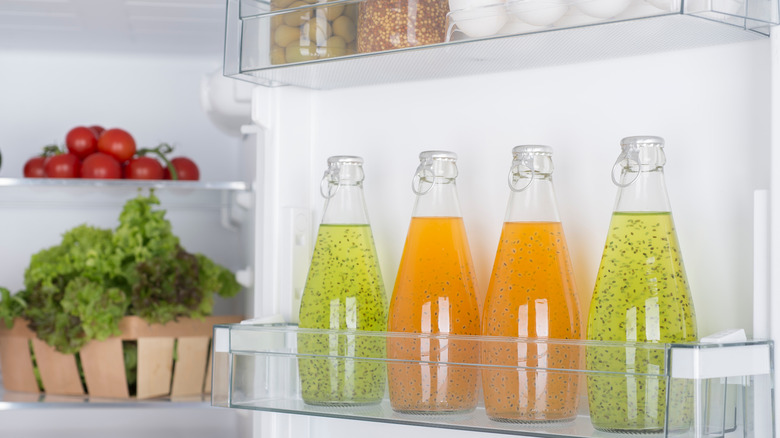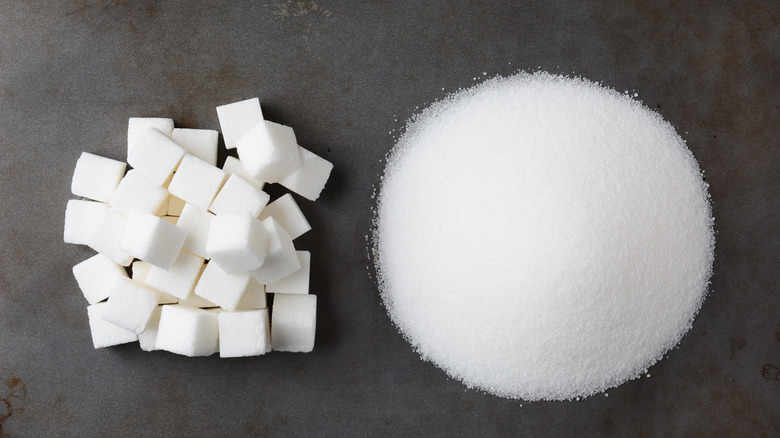Why You Should Never Drink Fruit Juice Before Bed
Nothing gets you good and ready for bed like a nice big cup of... juice? That felt wrong, right? Okay, glad we're on the same page. For those of you who said, "Yeah, you're right! Bring on the bedtime juice!" we have some bad news for you.
While MedicalNewsToday backs up what your auntie said about not drinking water before bed because it would have you up all night going to the bathroom, there are some things you can sip on that might help you sleep a little more soundly. Loaded with melatonin and tryptophan, a glass of warm milk might make you sleepier than you thought (per Healthline). Additionally, a piping hot mug of chamomile tea is well known for its dreamy sedative effect. As for fruit juice, however, we're sorry to say that it does not make the cut for appropriate bedtime beverages. Here's why you should avoid it.
How sugar impacts your sleep
Fruit juice is generally quite high in sugar. On average, a glass of fruit juice boasts a whopping 23 grams of sugar (per the US Department of Agriculture). To put that in perspective, the American Heart Association recommends women have no more than 24 grams of sugar a day and men have no more than 36 grams. Having all of that sugar right before heading to bed might be adding insult to injury!
According to Healthy Sleep, sugary snacks and drinks might make you feel sleepy and ready for bed in the short term, as sugar stops the production of the neurotransmitter in charge of making you feel alert and awake. Ultimately, though, a diet high in sugar messes with the overall quality of your sleep, causing you to wake up more frequently throughout the night. This can contribute to nightmares, night sweats, and snoring.
How high sugar levels affect your health
A bad night's sleep isn't the only way a diet high in sugar can sully up your situation. A 2014 study published in JAMA Internal Medicine linked a high-sugar diet with a greater risk of dying from cardiovascular disease. The study noted that added sugar can indirectly affect the heart in a few ways, including contributing to fatty liver disease and high blood pressure, both of which raise the risk of heart disease.
Regularly consuming foods with added sugars can also significantly contribute to quick and drastic weight gain. Another study published in the International Journal of Obesity in 2015 found that consuming sugary food and drinks late in the evening can have a profound negative effect on the metabolism and how our bodies process glucose.
Whenever you can, reach for water or herbal teas to hydrate instead — just not too close to bedtime if you want to avoid extra trips to the bathroom.



